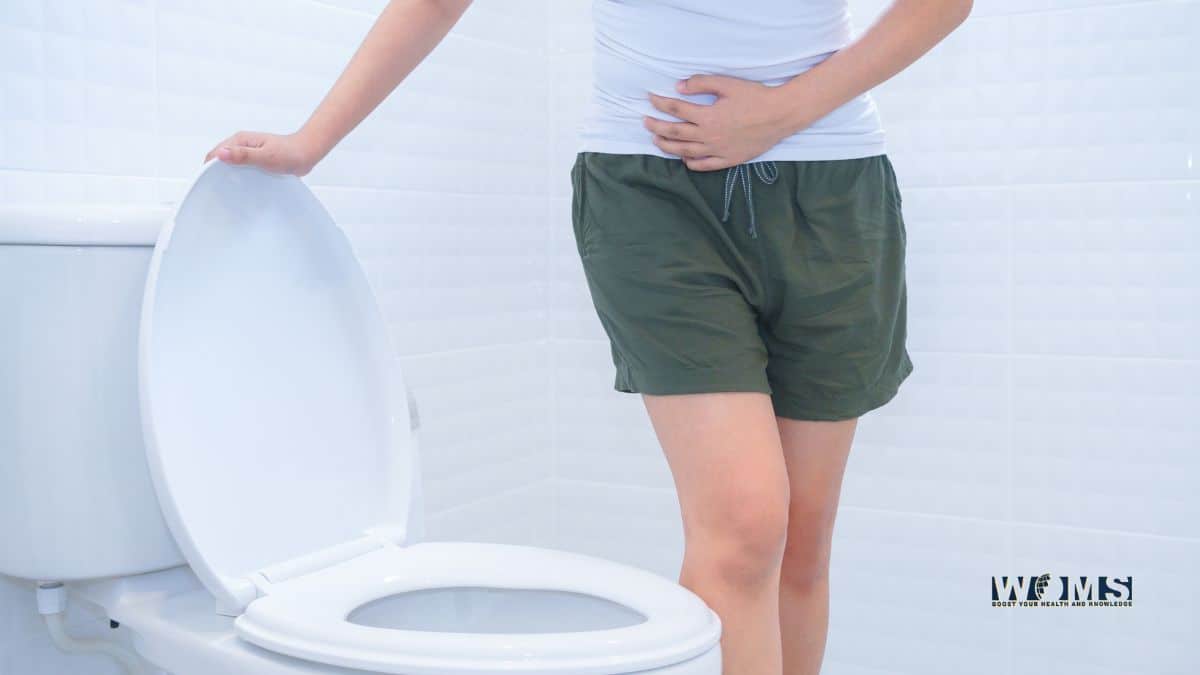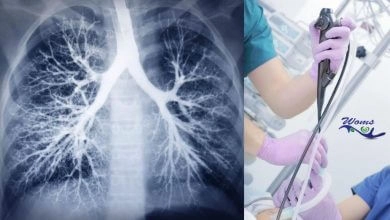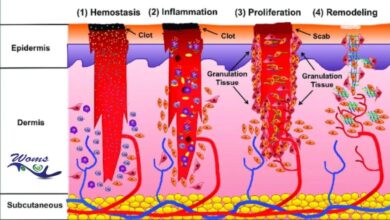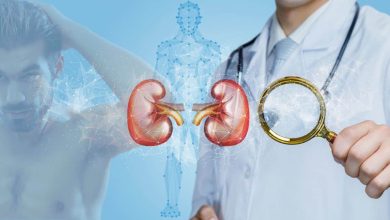Can Antibiotics Cause Diarrhea?

Can antibiotics cause diarrhea? Let’s have a look into it. Antibiotics are antimicrobial agents used to treat bacterial infections. Antibiotics can kill or reduce the growth potential of bacteria. Moreover, antibiotics have several beneficial effects on the treatment of bacterial infections. In contrast, antibiotics may induce multiple negative effects on human health. The most common question related to antibiotics is can antibiotics cause diarrhea. Antibiotic-associated diarrhea is common among 5 to 25 percent of the human population taking antibiotics. This article clears the causes and prevention of antibiotic-associated diarrhea. In addition, this article will also help you to find out the ways to cure antibiotic-associated diarrhea.
Antibiotic-associated diarrhea
Antibiotic-associated diarrhea is passing watery, loose stools with a frequency of more than three times a day after taking antibiotics. One in every five persons may suffer from antibiotic-associated diarrhea. Usually, it is a very mild condition and requires no medical treatment.
Diarrhea may clear itself after you stop taking medication. Severe conditions of diarrhea may require consultation from the physician to stop or change the antibiotic.
How can antibiotics cause diarrhea?
Most people focus on this question: can antibiotics cause diarrhea? The answer is yes, antibiotics can cause diarrhea. Antibiotics target mainly the bacterial agents either beneficial or harmful. There are several bacterial colonies living in the intestine that are good for human health.
Antibiotics can also kill those bacteria disrupting the microbial balance of the intestine. In this way, it may cause loose stools. In addition, good bacteria residing in the intestine have the potential to prevent infections by opportunistic bacteria. These opportunistic bacteria can cause inflammation of the intestine leading to diarrhea.
What are the symptoms of antibiotic-associated diarrhea?
Diarrhea may start after one week of taking antibiotics. In addition, diarrhea may develop after completing the treatment. If you are suffering from opportunistic bacterial infection by Clostridium Difficile, it may cause intestinal inflammation, leading to diarrhea. In this condition, you may have any one of the following symptoms:
- Abdominal cramps or pain
- Lower appetite
- Nausea or vomiting
- Loose watery stools
- Low-grade fever
- More bowel movements
How to diagnose antibiotic-associated diarrhea?
Now that you know the answer to can antibiotics cause diarrhea is yes, let us now know ways to diagnose it. It is a very simple way to diagnose diarrhea because of antibiotics. Usually, your doctor takes a good history of recent medication. If you are on antibiotics, it may suggest antibiotics cause diarrhea.
Moreover, if your doctor finds any symptoms of Clostridium difficile infection, your doctor may ask for a stool test to confirm the diagnosis.
What are the common antibiotics that can cause diarrhea?
Diarrhea is a common side effect of all antibiotics. But, there are some classes of antibiotics that most commonly cause diarrhea as compared to others. These are some of the common antibiotics that have higher chances to cause diarrhea.
- Penicillins: amoxicillin, ampicillin
- Cephalosporins: cephalexin
- Clindamycin
What are the food items that can help to prevent antibiotics from causing diarrhea?
If you are on antibiotics and also suffering from diarrhea, you may need to adjust your diet to maintain a healthy balance. After knowing the answer to what can antibiotics cause diarrhea is yes, you must know tips to prevent it. Here are some food tips to treat antibiotics causing diarrhea.
- Eat foods with low fiber content to treat diarrhea. Low fiber foods can soothe your stomach to heal from diarrhea.
- Eat foods that contain potassium. Potassium is usually lost during diarrhea. This will also help to treat diarrhea.
- Increase daily intake of fluids and salts. Diarrhea may cause dehydration due to increased water loss. It proves helpful to increase the intake of fluids and minerals to replenish the lost fluids
These are some of the specific food items to include on your diet plan during diarrhea. It will help you to manage the body changes during diarrhea.
- Fluids containing water or broths
- Fruits like bananas, apples, or canned fruits without syrups
- Grains like boiled rice or white bread
- Boiled or baked potatoes as these are the rich source of potassium
- Proteins like lean meat, chicken, or fish
- Yogurt
Which foods should we avoid to prevent antibiotics from causing diarrhea?
There are also several food items that we need to avoid during diarrhea. Here is the list of food items to avoid during such conditions.
- Alcohol
- Caffeinated drinks
- Dairy products excluding yogurt
- Fatty food items
- High fiber-containing foods
- Spicy food items
- Calcium supplements as these can interfere with the metabolism of antibiotics.
What are the other ways to prevent antibiotic-associated diarrhea?
Can antibiotics cause diarrhea? Yes, it can. So besides maintaining a check and balance on your diet, you should follow these steps to get relief from diarrhea. Here are some of the ideas to manage diarrhea.
- If you are suffering from antibiotic-associated diarrhea, increase your daily intake of water. Water plays a main role to balance the fluid content of the body. In addition, increased water intake also helps to manage diarrhea from antibiotics.
- You can also consult your physician regarding the medication for diarrhea. Your doctor may suggest you some anti-diarrheal medication. Moreover, your physician can also guide you about changing or stopping the intake of antibiotics.
When there is a need to visit a doctor for antibiotic-associated diarrhea?
Diarrhea due to antibiotics is usually mild. You can easily prevent this condition by properly following the above-mentioned diet change. When you stop antibiotics, diarrhea recovers itself. For this condition, there is no need to visit a doctor. But, if you are suffering from severe symptoms such as opportunistic bacterial infections, you need to visit your physician. You should be conscious once you’ve known it’s a yes to can antibiotics cause diarrhea.
There are some of these severe symptoms to consult with your physician. If you are suffering from any one of these symptoms while taking antibiotics, it is better to contact your physician.
- Five or more episodes of diarrhea per day
- Bloody stool
- Pus in the stool
- Abdominal cramps or pain
- Fever – indicating infection
What are other different ways to prevent diarrhea because of antibiotics?
You should know ways to prevent diarrhea because of antibiotics. Now it is even important after you know the answer to can antibiotics cause diarrhea is yes. There are several other ways to prevent or lower the risk of diarrhea due to antibiotics. These suggestions include:
- Use probiotics – it can help to grow good bacteria in the digestive system. Taking probiotics can help to prevent diarrhea in patients taking antibiotics.
- Proper hygiene – follow the oral hygiene measures to reduce the risk of opportunistic bacterial infections. It can also help to prevent Clostridium difficile infection.
- Follow medication rules – It is necessary to follow your doctor’s advice regarding antibiotics. Some antibiotics are suggested to take with proper food. Follow the rules to prevent diarrhea.
- Antibiotic demand – you should take antibiotics when you need them. Overuse or negative use of antibiotics can induce several side effects on the digestive system.
- Consult your doctor – It is better to consult your doctor regarding antibiotic intake. Your doctor may suggest better ways to prevent such conditions while taking antibiotics.
What are the risk factors for antibiotic-associated diarrhea?
Antibiotic-associated diarrhea is common among people who take antibiotics. But, there are more chances if you :
- Have suffered from antibiotic-associated diarrhea in the past.
- Have taken antibiotics for longer periods.
- Are taking more than one antibiotic regime.
What are the common complications of antibiotics-associated diarrhea?
Can antibiotics cause diarrhea? Yes. What are it’s complications? Diarrhea indicates loose, watery stools. One of the common complications of antibiotic-associated diarrhea is the loss of fluids and minerals leading to dehydration. Severe water loss can prove life-threatening. The most common symptoms include dry mouth, increased thirst, dizziness, weakness, or decreased urination. In this condition, consult your doctor as soon as possible. Your doctor may add anti-diarrheal medication or stop antibiotic courses.
Conclusion
Can antibiotics cause diarrhea? Yes, antibiotics can cause diarrhea due to the reduction of good bacteria in the intestine. Antibiotics can kill both the good and bad bacteria in the intestine. When good bacteria are killed, opportunistic bacterial infections can superimpose on the previous infections. It may cause severe diarrhea associated with fever or abdominal cramps.
Normally, antibiotic-associated diarrhea is curable itself. Your doctor may change or stop the ongoing antibiotic regime. But, if you are suffering from more than five episodes of watery stools, there is a need to visit your doctor immediately. It may indicate some opportunistic bacterial infection. In addition, there are several ways to prevent antibiotic-associated diarrhea.
You can change your diet to low fiber content. Moreover, you should increase the intake of fluids and minerals to overcome the body’s demand for fluids. These tips can help to prevent antibiotics from causing diarrhea. Now you must have known the answer to can antibiotics cause diarrhea.
Frequently asked questions (FAQs)
What is the normal duration for antibiotic-associated diarrhea?
Usually, antibiotic-associated diarrhea is mild and needs no management. Diarrhea receivers itself when you stop taking antibiotics. Severe conditions require stopping or switching the antibiotics.
Should I stop antibiotics if I suffer from diarrhea?
Some patients don’t suffer from diarrhea from certain antibiotics. Whereas, they can get diarrhea from other classes of antibiotics. Therefore, protect yourself by properly following the instructions. If you get diarrhea because of antibiotics, consult your physician.




